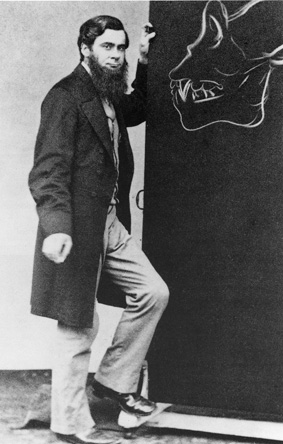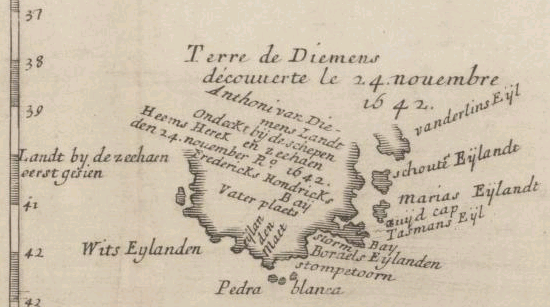|
Mary Augusta Ward
Mary Augusta Ward (''née'' Arnold; 11 June 1851 – 24 March 1920) was a British novelist who wrote under her married name as Mrs Humphry Ward. She worked to improve education for the poor setting up a Settlement in London and in 1908 she became the founding President of the Women's National Anti-Suffrage League. Early life Mary Augusta Arnold was born in Hobart, Tasmania, Australia, into a prominent intellectual family of writers and educationalists. Mary was the daughter of Tom Arnold, a professor of literature, and Julia Sorell. Her siblings included writer and journalist William Thomas Arnold, suffrage campaigner Ethel Arnold, and Julia Huxley who founded Prior's Field School for girls in 1902 and married Leonard Huxley and their sons were Julian and Aldous Huxley. The Arnolds and the Huxleys were an important influence on British intellectual life. An uncle was the poet Matthew Arnold and her grandfather Thomas Arnold, the famous headmaster of Rugby School. ... [...More Info...] [...Related Items...] OR: [Wikipedia] [Google] [Baidu] |
Hobart
Hobart ( ; Nuennonne/Palawa kani: ''nipaluna'') is the capital and most populous city of the Australian island state of Tasmania. Home to almost half of all Tasmanians, it is the least-populated Australian state capital city, and second-smallest if territories are taken into account, before Darwin, Northern Territory. Hobart is located in Tasmania's south-east on the estuary of the River Derwent, making it the most southern of Australia's capital cities. Its skyline is dominated by the kunanyi/Mount Wellington, and its harbour forms the second-deepest natural port in the world, with much of the city's waterfront consisting of reclaimed land. The metropolitan area is often referred to as Greater Hobart, to differentiate it from the City of Hobart, one of the five local government areas that cover the city. It has a mild maritime climate. The city lies on country which was known by the local Mouheneener people as nipaluna, a name which includes surrounding features such as ... [...More Info...] [...Related Items...] OR: [Wikipedia] [Google] [Baidu] |
Huxley Family
The Huxley family is a British family; several of its members have excelled in science, medicine, arts and literature. The family also includes members who occupied senior positions in the public service of the United Kingdom. The patriarch of the family was the zoologist and comparative anatomist Thomas Henry Huxley (1825–1895). His grandsons include Aldous Huxley (author of ''Brave New World'' and ''The Doors of Perception'') and his brother Julian Huxley (an evolutionary biologist and the first director of UNESCO) and the Nobel laureate physiologist Andrew Huxley. Family tree Thomas Henry Huxley Thomas Henry Huxley (1825–1895) was an English biologist. Known as "Darwin's Bulldog" for his defence of Charles Darwin's theory of evolution. Mostly a self-educated man, he had an extraordinary influence on the British educated public. He was instrumental in developing scientific education in Britain, and opposed those Christian leaders who tried to stifle scie ... [...More Info...] [...Related Items...] OR: [Wikipedia] [Google] [Baidu] |
Brasenose College, Oxford
Brasenose College (BNC) is one of the constituent colleges of the University of Oxford in the United Kingdom. It began as Brasenose Hall in the 13th century, before being founded as a college in 1509. The library and chapel were added in the mid-17th century and the new quadrangle in the late 19th and early 20th centuries. For 2020–21, Brasenose placed 4th in the Norrington Table (an unofficial measure of performance in undergraduate degree examinations). In a recent Oxford Barometer Survey, Brasenose's undergraduates registered 98% overall satisfaction. In recent years, around 80% of the UK undergraduate intake have been from state schools. Brasenose is home to one of the oldest rowing clubs in the world, Brasenose College Boat Club. History Foundation The history of Brasenose College, Oxford stretches back to 1509, when the college was founded on the site of Brasenose Hall, a medieval academic hall whose name is first mentioned in 1279. Its name is believed to derive f ... [...More Info...] [...Related Items...] OR: [Wikipedia] [Google] [Baidu] |
Marcella (novel)
''Marcella'' is a novel by Mary Augusta Ward, first published in 1894. Further reading "Marcella: Mrs. Humphry Ward's New Novel on Socialism and Wealth,"''Review of Reviews,'' Vol. 9, 1894, pp. 492–493. "Marcella and Pembroke,"''The Atlantic Monthly,'' Vol. 74, No. 442, 1894, pp. 272–74. "Mrs. Ward’s Marcella,"''Overland Monthly and Out West Magazine,'' Vol. 24, No. 142, 1894, pp. 446–447. * "The Marcellas and Mintas of Society," ''The Congregationalist,'' Vol. 80, No. 10, March 1895, p. 361. * Barry, W.F. (1894)"The Strike of a Sex,"''The Quarterly Review,'' Vol. 179, No. 358, pp. 289–318. * Crawford, F. Marion (May 1894)"Marcella: Mrs. Humphry Ward’s New Novel,"''Current Literature,'' Vol. 15, No. 5, p. 396. * Herrero Granado, M. Dolores (1995). "Defiance in Disguise: Mary Ward’s Ambivalent Concept of Women as Reflected in ''Marcella''," ''English Literature in Transition, 1880-1920,'' Vol. 38, No. 4, pp. 445–465. * Johnson, ... [...More Info...] [...Related Items...] OR: [Wikipedia] [Google] [Baidu] |
Oxford
Oxford () is a city in England. It is the county town and only city of Oxfordshire. In 2020, its population was estimated at 151,584. It is north-west of London, south-east of Birmingham and north-east of Bristol. The city is home to the University of Oxford, the oldest university in the English-speaking world; it has buildings in every style of English architecture since late Anglo-Saxon. Oxford's industries include motor manufacturing, education, publishing, information technology and science. History The history of Oxford in England dates back to its original settlement in the Saxon period. Originally of strategic significance due to its controlling location on the upper reaches of the River Thames at its junction with the River Cherwell, the town grew in national importance during the early Norman period, and in the late 12th century became home to the fledgling University of Oxford. The city was besieged during The Anarchy in 1142. The university rose to dom ... [...More Info...] [...Related Items...] OR: [Wikipedia] [Google] [Baidu] |
Shropshire
Shropshire (; alternatively Salop; abbreviated in print only as Shrops; demonym Salopian ) is a landlocked historic county in the West Midlands region of England. It is bordered by Wales to the west and the English counties of Cheshire to the north, Staffordshire to the east, Worcestershire to the southeast, and Herefordshire to the south. A unitary authority of the same name was created in 2009, taking over from the previous county council and five district councils, now governed by Shropshire Council. The borough of Telford and Wrekin has been a separate unitary authority since 1998, but remains part of the ceremonial county. The county's population and economy is centred on five towns: the county town of Shrewsbury, which is culturally and historically important and close to the centre of the county; Telford, which was founded as a new town in the east which was constructed around a number of older towns, most notably Wellington, Dawley and Madeley, which is today th ... [...More Info...] [...Related Items...] OR: [Wikipedia] [Google] [Baidu] |
Shifnal
Shifnal is a market town and civil parish in Shropshire, England, about east of Telford, 17 miles (27 km) east of the county town of Shrewsbury and 13 miles (20 km) west-northwest of the city of Wolverhampton. It is near the M54 motorway (Junction 4). At the 2001 census, it had a population of 6,391, increasing to 6,776 at the 2011 census. History Early medieval time The town, also once known as "Idsall" (relating to potential Roman links), most probably began as an Anglian settlement, established by the end of the 7th century. Shifnal is thought to be the place named "Scuffanhalch" in a 9th-century charter, as a possession of the monastery at Medeshamstede (later Peterborough Abbey). Though this seems a dubious claim, and the ancient charter is in fact a 12th-century forgery, the full picture is more complex. Sir Frank Stenton considered that "Scuffanhalch", along with "Costesford" ( Cosford) and "Stretford", formed part of a list of places which had once been c ... [...More Info...] [...Related Items...] OR: [Wikipedia] [Google] [Baidu] |
Boarding School
A boarding school is a school where pupils live within premises while being given formal instruction. The word "boarding" is used in the sense of "room and board", i.e. lodging and meals. As they have existed for many centuries, and now extend across many countries, their functioning, codes of conduct and ethos vary greatly. Children in boarding schools study and live during the school year with their fellow students and possibly teachers or administrators. Some boarding schools also have day students who attend the institution by day and return off-campus to their families in the evenings. Boarding school pupils are typically referred to as "boarders". Children may be sent for one year to twelve years or more in boarding school, until the age of eighteen. There are several types of boarders depending on the intervals at which they visit their family. Full-term boarders visit their homes at the end of an academic year, semester boarders visit their homes at the end of an acade ... [...More Info...] [...Related Items...] OR: [Wikipedia] [Google] [Baidu] |
Roman Catholic Church
The Catholic Church, also known as the Roman Catholic Church, is the largest Christian church, with 1.3 billion baptized Catholics worldwide . It is among the world's oldest and largest international institutions, and has played a prominent role in the history and development of Western civilization.O'Collins, p. v (preface). The church consists of 24 ''sui iuris'' churches, including the Latin Church and 23 Eastern Catholic Churches, which comprise almost 3,500 dioceses and eparchies located around the world. The pope, who is the bishop of Rome, is the chief pastor of the church. The bishopric of Rome, known as the Holy See, is the central governing authority of the church. The administrative body of the Holy See, the Roman Curia, has its principal offices in Vatican City, a small enclave of the Italian city of Rome, of which the pope is head of state. The core beliefs of Catholicism are found in the Nicene Creed. The Catholic Church teaches that it is th ... [...More Info...] [...Related Items...] OR: [Wikipedia] [Google] [Baidu] |
Tasmania
) , nickname = , image_map = Tasmania in Australia.svg , map_caption = Location of Tasmania in AustraliaCoordinates: , subdivision_type = Country , subdivision_name = Australia , established_title = Before federation , established_date = Colony of Tasmania , established_title2 = Federation , established_date2 = 1 January 1901 , named_for = Abel Tasman , demonym = , capital = Hobart , largest_city = capital , coordinates = , admin_center = 29 local government areas , admin_center_type = Administration , leader_title1 = Monarch , leader_name1 = Charles III , leader_title2 = Governor , leader_name2 ... [...More Info...] [...Related Items...] OR: [Wikipedia] [Google] [Baidu] |
Van Diemen's Land
Van Diemen's Land was the colonial name of the island of Tasmania used by the British during the European exploration of Australia in the 19th century. A British settlement was established in Van Diemen's Land in 1803 before it became a separate colony in 1825. Its penal colonies became notorious destinations for the transportation of convicts due to the harsh environment, isolation and reputation for being inescapable. Macquarie Harbour and Port Arthur are among the most well-known penal settlements on the island. With the passing of the Australian Constitutions Act 1850, Van Diemen's Land (along with New South Wales, Queensland, South Australia, Victoria, and Western Australia) was granted responsible self-government with its own elected representative and parliament. On 1 January 1856, the colony of Van Diemen's Land was officially changed to Tasmania. The last penal settlement was closed in Tasmania in 1877. Toponym The island was named in honour of Anthony van Die ... [...More Info...] [...Related Items...] OR: [Wikipedia] [Google] [Baidu] |


.jpg)

.jpg)

